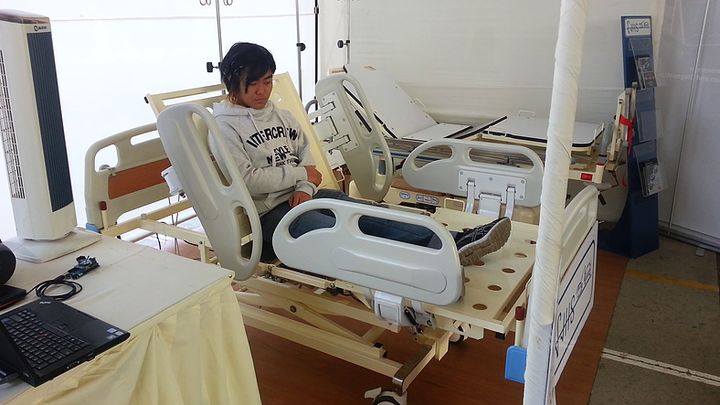 Bachelor’s Thesis
Bachelor’s ThesisAbstract
The use of hospital beds capable of adopting different positions is important for caretaking of mobile disability patients. Most hospital beds used nowadays are of mechanical action or have manually controlled electrical actuators. For that reason, it is necessary for a specialized caretaker to be with the patient to change the bed’s position. This implies a considerable cost for the hospital as well as being hazardous for the health of the employee for doing repetitive physical labor. Some companies have started to develop more complex medical beds, that allows patients to change positions autonomously with a friendly interface, but these beds are pricy and have limited functionality. For this reason, the following thesis work proposes the design of a robust and programmable hospital bed, of easy handling, that can be controlled by voice and a graphic interface. Moreover, the system is capable of automatically acquiring non-invasive biometric data, and is capable of adapting to a wide range of needs inside a hospital.